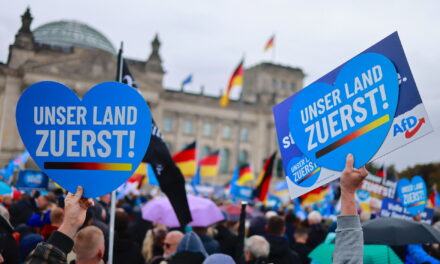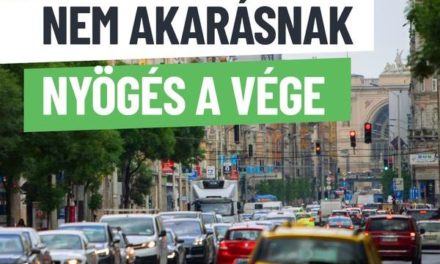There are few things as annoying in civilian life as when our fellow human beings make a program for us, they want to dictate what we should think, how we should behave, where we should go. A particular fashion for this has developed in politics: the expectation and forcing of distancing, declarations, and demonstrations.
Most recently - with the summer cucumber season approaching - a politician from Párbeszéd (what is that?) called (?) Katalin Novák to participate in one of the Pride events. And from the other side, the opposite request came to the President of the Republic: do not take part in it.
The Hungarian head of state has an interesting position. "It embodies the unity of the nation", says the elusive task. This primarily hides the fact that he is the president of all Hungarian citizens, and indeed of all members of the Hungarian nation, precisely on the basis that they are Hungarians or Hungarian citizens.
Of course, everyone has many other identities besides their ethnic ones, but no one, not even the president of the republic, can be expected to represent them all at the same time.
It cannot cover all segments of the entire society. If some people are calling for the expansion of abortion, should you protest with them in the same way as the anti-abortionists? If Fradi wins the championship, will you drink champagne together with the green and whites, and next year, if that's the case, with Újpest? Can you be in solidarity with the thief and the stolen at the same time? With Christian and atheist, meat-eater and vegan, smoker and non-smoker, alcoholic and abstainer? Should you take a stand in every conflict, risking not being able to please everyone at the same time?
Obviously there are priorities - they should be, since this is politics.
A leftist or green president has different priorities than a conservative. And this (since the parliament decides on the person of the president) inevitably rhymes with the will of the majority expressed in the elections. The symbolic embrace of sexual orientations that differ from normal is not currently among the priorities of the Hungarian community.

Budapest, July 24, 2021. Participants of the 26th Budapest Pride march on Vámház körút on July 24, 2021.
MTI/Koszticsák Solid
If, say, one of our compatriots is arrested in Qatar for waving a rainbow flag - regardless of what we think about it - the Hungarian state is obliged to provide the person with the greatest possible support. Just like anyone who gets into trouble in a foreign country. But not because the person is a stamp collector, a Fradi-drucker, a blitzer on the train or a homosexual, but because he is Hungarian.
Katalin Novák summarized what she considers important (e.g. families, women, people living in poor conditions, talented young people), standing for Pride was not among them. (He did not take a position on the Fradi-Újpest issue either.)
And while we are lamenting who should go where to march - in Oslo, the capital of Norway, an assassin opened fire on the partygoers of a gay bar. I don't know if the Norwegian president marched at the local Pride (I'd be surprised if he didn't), but maybe the Scandinavian LGBTQ community would trade it for a more peaceful environment. Even for someone like the Hungarian who has been declared a homophobe. What I found strange, however, was that, according to the news, it was a downtown nightclub.
Why does a narrow subculture have to hold its strange parties in the heart of the capital, in front of everyone's eyes and provoking?
Why is it necessary to march on Andrássy út (Mi Hazánk prevented this this year), why is it necessary to wave flags and push aggressively in the face of the apparently unreceptive majority? And then to complain about the exclusion and make program proposals to the president of the republic at a time when there is a war going on next door, an unprecedented energy shortage, an economic crisis and a wave of migration are threatening.
Source and full article: vasarnap.hu/Ungváry Zsolt
Featured image: MTI












